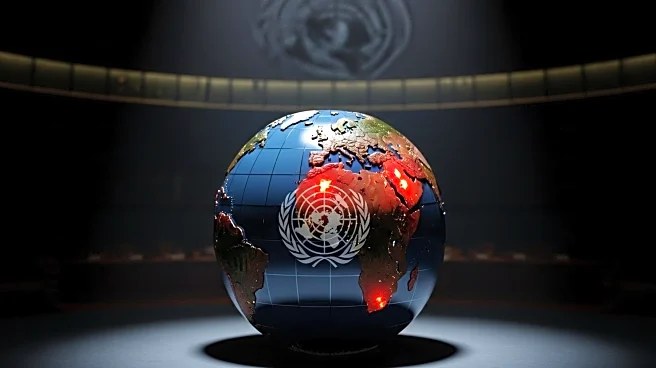What's Happening?
United Nations sanctions on Iran are set to be reimposed on Saturday following the failure of a Russian and Chinese resolution to delay them. The resolution was intended to postpone the sanctions for six months but was rejected by the UN Security Council, with nine countries voting against it and two abstaining. The sanctions, which target Iranian proliferation, are being reinstated after European powers accused Iran of violating the 2015 nuclear deal. In response, Iran has recalled its ambassadors to Germany, France, and the United Kingdom for consultations. The sanctions will include an arms embargo, bans on uranium enrichment and reprocessing, restrictions on ballistic missile activity, and global asset freezes.
Why It's Important?
The reimposition of UN sanctions on Iran is significant as it heightens tensions between Iran and Western powers, potentially impacting global diplomatic relations and regional stability. The sanctions are expected to further strain Iran's economy, which has been under pressure since the U.S. withdrew from the nuclear deal in 2018. The decision underscores the challenges in diplomatic negotiations with Iran and may influence future international efforts to address nuclear proliferation. The sanctions could also affect global energy markets, given Iran's role as a major oil producer.
What's Next?
With the sanctions set to take effect, Iran has warned of potential escalation and has indicated it will not withdraw from the Non-Proliferation Treaty. Western powers, including the U.S. and European nations, have left the door open for future diplomatic talks, although the path forward remains uncertain. The international community will be closely monitoring Iran's response and any potential retaliatory actions, which could further complicate diplomatic efforts.








